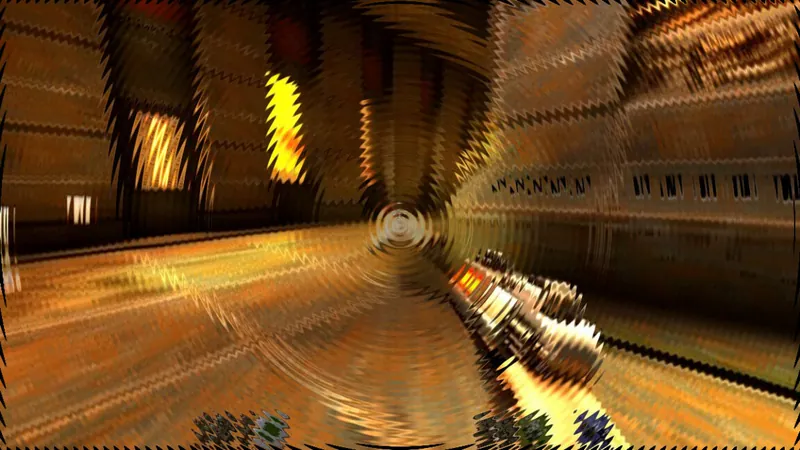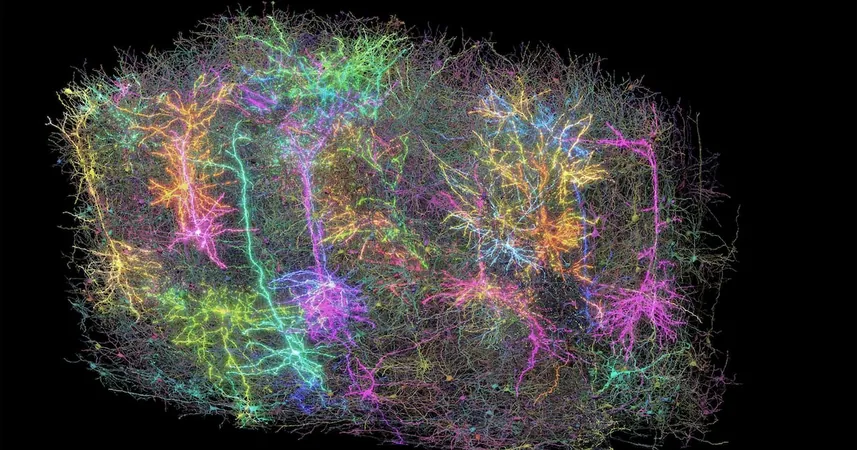
John Carmack Stands Firm on AI Advancements in Gaming Amidst Criticism
2025-04-08
Author: Emily
In a spirited defense of Microsoft's innovative use of AI technology, John Carmack, the co-creator of id Software's legendary Quake franchise, has responded to criticisms regarding a recent AI-generated demo of Quake II. The demo, unveiled last Friday, showcases a groundbreaking AI game engine named WHAMM (World and Human Action MaskGIT Model) that can generate the game in real-time, diverging from traditional development methods. Carmack lauds it as "impressive research work," pushing back against concerns regarding its potential impacts on employment within the gaming industry.
A fan on X, known as "Quake Dad," expressed disgust over the tech demo, asserting that it "spits on the work of every developer everywhere." The critic voiced fears about AI potentially sidelining jobs within an industry already grappling with significant layoffs, suggesting that fully generative games might reduce opportunities for developers.
Carmack took a moment to address these apprehensions directly, clarifying the demo's purpose. He highlighted the historical context of technological advancements that have continuously reshaped game development. Reflecting on his early experiences in the field, he stated, "My first games involved hand assembling machine code... Software progress has made that work as irrelevant as chariot wheel maintenance." He emphasized that AI tools represent another evolution in development practices, rather than a direct threat to employment.
In a similar vein, Tim Sweeney, CEO of Epic Games, chimed in, supporting Carmack's viewpoint. He argued that AI should be seen as a powerful addition to the toolkit of programmers and designers, much like high-level programming languages and graphic design software from previous generations. Both recognized the transformative potential of AI in enhancing creativity and productivity while dispelling the notion that it would simply eliminate jobs.
The WHAMM technology, as described by Microsoft's research team, is still in its nascent stages. It's primarily an exploration of real-time gameplay generation, albeit with notable limitations. The current demo only represents a fraction of Quake II, and players have reported issues with enemy behavior and the system's short memory span. Microsoft candidly cautions that the demo does not replicate the full experience of the original game but is rather an experimental prototype.
This AI-generated Quake II experience, while impressive, still operates in a surreal and sometimes glitchy manner. For instance, repeated enemy encounters may feel mechanically predictable, and certain environmental details may disappear based on player actions. These limitations highlight an ongoing gap between technological marketing and functional application.
Despite these challenges, experts foresee AI's most practical near-term applications in coding assistance and rapid game prototyping, rather than as a replacement for traditional development methodologies. Skilled human developers remain crucial in creating compelling and well-polished gaming experiences.
In closing, Sweeney urges optimism about the future, stating, "Competition will ultimately lead to companies producing the best work they’re capable of," suggesting that such advancements could foster more jobs rather than fewer. Carmack, summarizing the ongoing conversation, remarked, "Whether there will be more or less game developer jobs is still an open question," comparing potential outcomes to historical trends in farming and social media.
As the gaming industry stands on the precipice of a new era powered by AI, the dialogue surrounding its implications will undoubtedly continue, as developers and tech enthusiasts alike ponder the future of creativity and employment in gaming.









 Brasil (PT)
Brasil (PT)
 Canada (EN)
Canada (EN)
 Chile (ES)
Chile (ES)
 Česko (CS)
Česko (CS)
 대한민국 (KO)
대한민국 (KO)
 España (ES)
España (ES)
 France (FR)
France (FR)
 Hong Kong (EN)
Hong Kong (EN)
 Italia (IT)
Italia (IT)
 日本 (JA)
日本 (JA)
 Magyarország (HU)
Magyarország (HU)
 Norge (NO)
Norge (NO)
 Polska (PL)
Polska (PL)
 Schweiz (DE)
Schweiz (DE)
 Singapore (EN)
Singapore (EN)
 Sverige (SV)
Sverige (SV)
 Suomi (FI)
Suomi (FI)
 Türkiye (TR)
Türkiye (TR)
 الإمارات العربية المتحدة (AR)
الإمارات العربية المتحدة (AR)